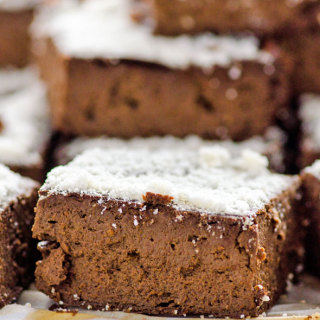Vegan Guide To Protein Powder
While we have talked in the past about vegan protein sources, something that was left out was how athletes can get additional protein from non whey sources. Most protein powders (Unless specifically labeled vegan), are made out of milk whey or casein, which is obviously a big no no for vegans. Thankfully, there are many alternatives now that give just as much protein for not that much more cost, infact usually it’s about the same price. In addition to this, even if you aren’t vegan yourself, many use a “vegan” protein powder because whey protein gives them a bloated feeling, so this guide’s also for you!
To blend or not to blend?
First thing to get out of the way, is that this article will talk about the raw protein powders as you would buy them off the shelf, unblended. Many sports supplements stores have “vegan blends” that mix many of the following powders together into one. This can be thought of as “easier” to manage when you only have the one protein powder tub, but you often have to watch out for additional sugars or additives that you may not have planned on.
Soy Protein Powder
Soy protein can be thought of as a “complete” protein. That is, it provides all the required amino acids for human nutrition. Usually the protein content in soy powders range from 80% – 85%. The biggest barrier for some, is having that much soy in your diet. Especially if you are completely vegan, you probably eat a lot of tofu/soy products as it is. Rather than regurgitating that info back to you, I recommend checking out the wikipedia article for Soybeans (Follow the source links!), and researching a bit more on the topic before using soy protein on a daily basis.
Rice Protein Powder
Rice protein on it’s own is not usually considered a complete protein. It is low in the amino acid “lysine”. The most common use for rice protein powder is to be mixed with pea protein, which in turn is high in “lysine”, but low in other amino acids. Rice protein usually sits around the 80% mark for protein content. The powder is usually very fine, almost like sand, so needs to be mixed well to help dissolve it.
Pea Protein Powder
Pea protein, much the same as rice protein, is not usually considered a complete protein. It is low in the amino acids “cysteine” and “methionine”, the exact amino acids that rice protein is high in. The protein content of pea protein is around 80%. The powder is much more clumpier than rice protein, so again needs to be mixed well with a proper shaker. Using a spoon/fork/knife in a cup will not cut it.
Hemp Protein Powder
Fairly new on the scene, hemp protein powder is not that well stocked at supplement stores (If at all). In countries such as New Zealand, it often has be stocked as “human grade animal feed” to be sold to consumers! The big downside to hemp protein powder is that it’s usually very low protein content, with a range of somewhere between 30 – 50%. Many choose it because of it’s Omega 3/6/9 qualities which are huge, aswell as it’s Vitamin A and Fibre. If you are looking for a protein powder more as a meal replacement, or just to get a decent protein hit, than hemp protein may be for you, but for people looking for a pre or post workout drink, maybe not so much.
Personal Preference?
My own personal preference i.e. what I actually use, is pea mixed with rice protein. For me it came down to the ability to buy a simple pea and rice protein separately (not blended!), without additives. Soy protein was actually hard to come by in New Zealand without it being ploughed with flavors, sugars and additives. You can still add in your own sweeteners when you make your shake, but it should be up to you not the manufacturer!
 Vegan Protein Fudge Brownies
Vegan Protein Fudge Brownies  Vegan Cinnamon Rolls
Vegan Cinnamon Rolls  Vanilla Cashew Shake
Vanilla Cashew Shake
So, what do you think ?